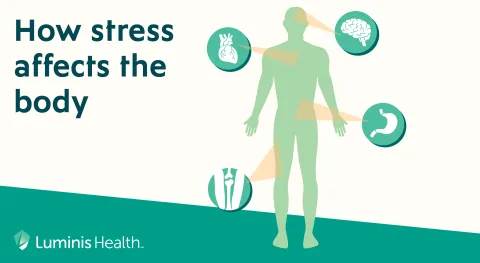by Luminis Health

Even a tough guy goes to the hospital if a tree falls on his head. So why won’t men seek medical help when their world comes crashing down on them, as it can with depression? Nearly 6 million American men experience depression each year, yet few seek treatment.
Perhaps men don’t realize that depression is a disease—not a weakness. Or maybe they’re not aware that successful treatments exist. No matter the reason, depression is a disease that shouldn’t be ignored by anyone—including men.
Recognizing depression
“The vast majority of people who seek treatment for depression end up feeling better,” says Raymond Hoffman, MD, a psychiatrist and the medical director of mental health and substance abuse at AAMC. It’s a good idea to visit your doctor if you’re experiencing these signs and symptoms of depression:
- loss of energy or increased fatigue
- restlessness, anger or irritability
- a lack of interest in favorite activities
- sleep problems
- changes in appetite
- excessive feelings of sadness, worthlessness or guilt
- trouble concentrating, remembering or making decisions
- thoughts of, or attempts at, suicide
Your doctor can check to see if physical problems are affecting your emotional health. Plus, he or she can refer you to a therapist or counselor who will work with you to relieve your symptoms.
It’s OK to ask for help
“It may not be easy to talk about how you’re feeling,” Dr. Hoffman says. “But depression can seriously interfere with your work and personal life. Acknowledging it and getting treatment can help you get your life back to normal.”
Originally published Oct. 23, 2014. Last updated May 31, 2019.



